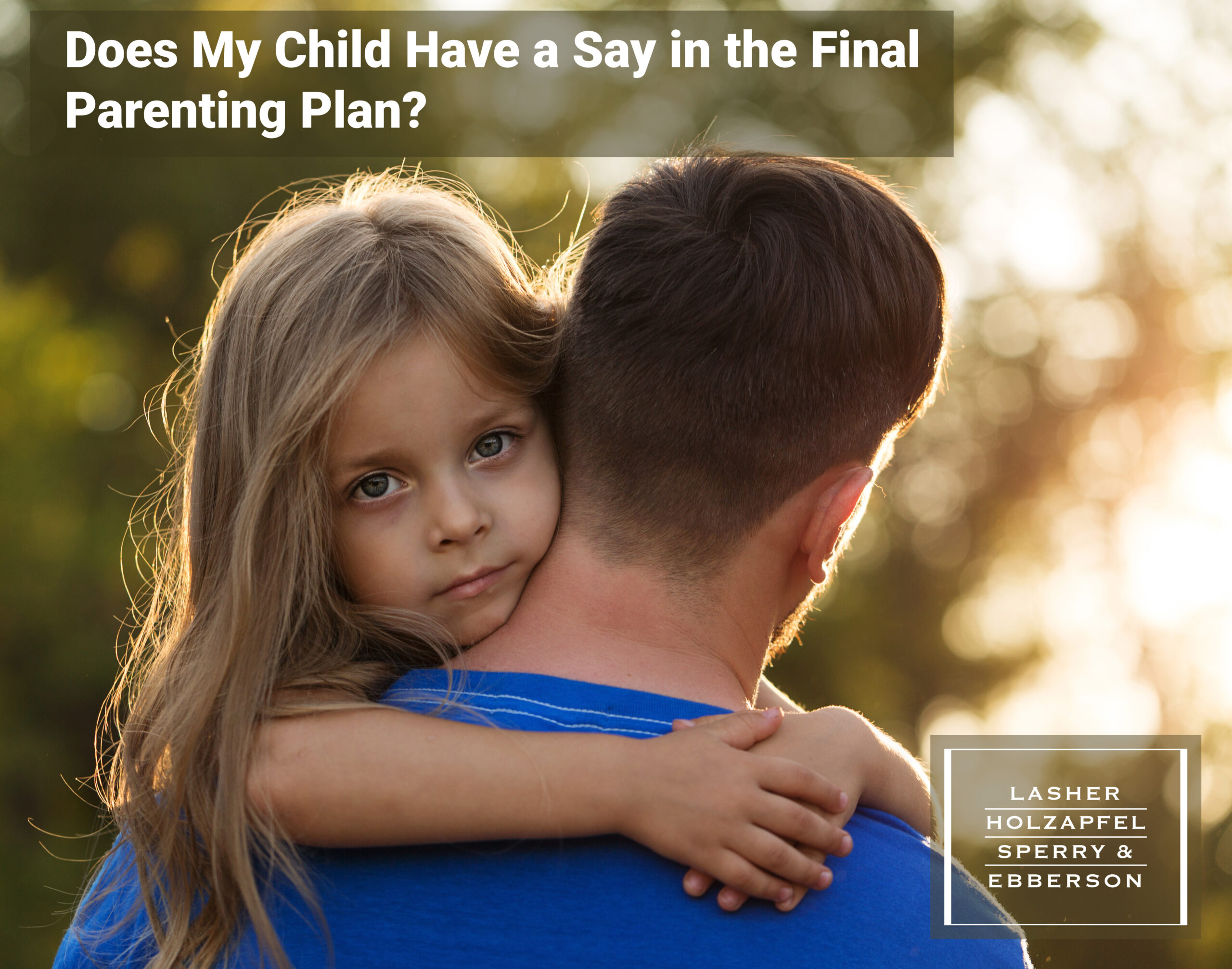Does My Child Have a Say in the Final Parenting Plan?

Posted on April 29, 2024 by Mina Saudagaran
When a divorcing parent asks this question, their attorney might respond with the common saying, “Children have a voice, not a choice.” In Washington state, the extent to which a child’s voice is heard in establishing a final parenting plan depends on several factors.
First, in determining the residential schedule, the wishes of a child may be considered if the child is “sufficiently mature to express reasoned and independent preferences as to his or her residential schedule.”[1] Maturity does not depend on the child’s age (i.e., a twelve-year-old may be deemed sufficiently mature, whereas a fifteen-year-old may not), but rather whether the child can clearly express his or her preferences and the reasons for them. Additionally, the child’s preference must be independent, meaning it is not the product of coaching by a parent, older sibling, etc.
Second, statements the child makes expressing his or her preference must be admissible as evidence for a court to properly consider them. It is a generally not sufficient for one parent to testify that their child told them they would prefer to live with that parent because the other party will likely object on the basis of hearsay. Hearsay is an out-of-court statement offered in court to prove the truth of the matter asserted and is only admissible under certain exceptions.[2] Therefore, a parent who wants to ensure that their child’s preference is considered should consider requesting the court to appoint either a parenting evaluator or a guardian ad litem (GAL) to conduct an investigation and prepare an evaluative report that contains recommendations as to the final parenting plan. As part of the investigation, the parenting evaluator or GAL will interview the parents, collateral witnesses (those who have knowledge/information relevant to the parenting plan), and the child. If the child expresses a preference about the parenting plan, the report must include it. While a court is not required to adopt or follow the recommendations in the report, you should expect that the report is going to be persuasive to the court when it comes to decisions about parenting.
You should ask your attorney for information on what the parenting evaluation/GAL process entails. A few considerations:
- If the court appoints a GAL, s/he becomes a party to the case and is responsible for representing and protecting the best interests of the child pursuant to RCW 26.12.175. A GAL can attend and testify at hearings as a representative of the child.
- A parenting evaluator does not become a party to the case and functions more like an independent witness who may be called to testify by either party’s attorney.
- Both parenting evaluators and GALs require advance fee deposits to start their work (often ranging from $3,500-$10,000), and the court will direct how the parties must pay or split these costs. If your income falls below a certain threshold, there may be other options available to you.
- Due to the high demand for their services, most parenting evaluators and GALs will not be able to start an investigation right away, and the investigation itself may take multiple months. The court order will set a deadline by which the report must be completed and provided to both parties.
- The order appointing a GAL or parenting evaluator will often include the scope of the investigation and may lists specific parenting concerns or parent issues that are prevalent in the case or that a party has raised as needing to be further investigated and evaluated.
Remember that under Washington law the primary goal is to establish a parenting plan that is in the best interests of your child.
If you have questions, or need assistance as you go through the divorce process, the Family Law Practice Group at Lasher is here to help.
[1] RCW 26.09.187(3)(a)(vi)
[2] ER 801-802

